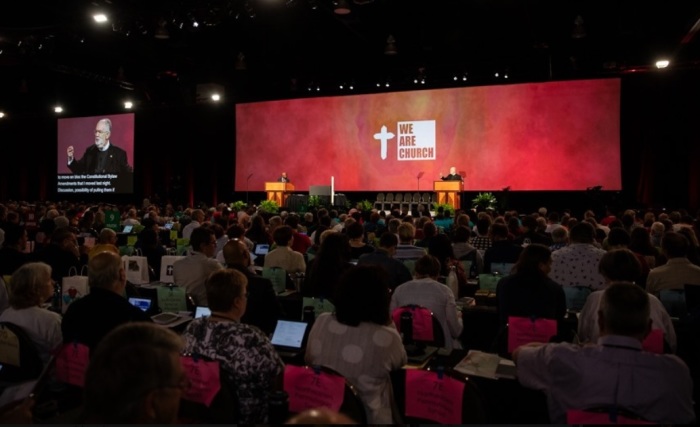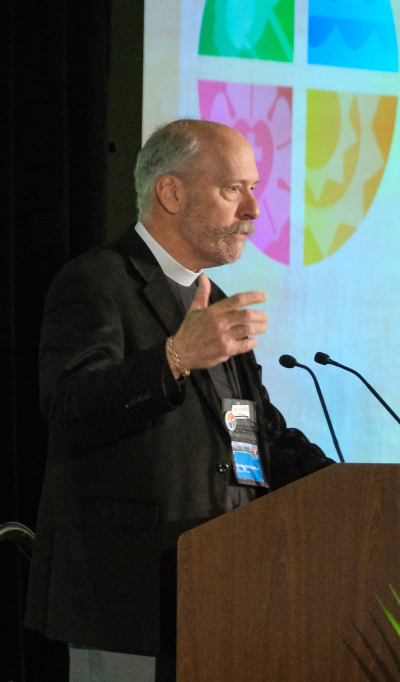Evangelical Lutheran Church short ‘at least 600’ pastors as many step away from ministry amid pandemic

Since their former Pastor Darren Paulson resigned last September as the COVID-19 pandemic raged into its second year, congregants of Atonement Lutheran Church in Billing Heights, Montana, have been waiting patiently for their local synod to replace him.
With a national shortage of “at least 600” pastors in the Evangelical Lutheran Church in America under which the Atonement Lutheran Church operates, according to lay leader Kristin LaVe, it might be some time before their wait for a new pastor is over.
“The shortage [is what’s behind the wait], that’s what they’re telling us from the synod,” Nancy Rupe, the church’s office administrator who now runs the daily operations of the church with more than 260 active members, told The Christian Post on Tuesday. “Our pastor resigned and took a position at another organization in September and so we’ve been in the call process since that time.”
At the Montana Synod of the ELCA, 35 pastor positions remain unfilled, LaVe told KTVQ. So as they wait to get a full-time pastor again, Rupe said the church has had to get creative to source preachers on Sundays. The church now routinely reaches out to a list of 10 to 12 retired and lay pastors to see who might be available to preach each week.
“We have a calendar. It’s just typically a different pastor each week. It’s not always the same pastor,” Rupe said.
When asked what she thinks was the reason behind the pastor shortage, Rupe said she believes people are no longer as attracted to ministry as they were in the past and the COVID-19 pandemic was a big shock to the profession.
“I’m assuming that it’s probably because there’s not as many individuals going into ministry and therefore not attending seminary. And then you have what they call baby boomers going into retirement,” she said. “I’m sure COVID had some part to play in it.”
Bishop Paul Egensteiner, who leads the Metropolitan New York Synod of the ELCA, told CP in a statement Tuesday that the denomination has been hit very hard with a “retirement wave” and his synod was no exception.
“We, also, are experiencing a shortage and have been for some time. For this reason, our churches end up waiting longer than any of us wants to for a new pastor,” Egensteiner said.
“The ELCA is hitting a ‘retirement wave’ where pastors ordained in the '70s and '80s are at or over retirement age and this is leading to an even greater shortage since those decades were the most recent height of pastors entering ministry,” he continued, noting that there is also a “critical shortage of pastors who are bilingual who can minister to the diversity of communities in our area, notably Spanish-speaking and Asian communities.”

Indeed, the pastor shortage in the ELCA comes as an increasing number of pastors in general revealed in a recent study that they are considering quitting their jobs due to challenges such as stress, loneliness, political divisions and other worries like their church being in decline.
In 2017, well before the COVID-19 pandemic, a Barna Group report also showed how the average age of Protestant pastors in the United States had increased by a decade over the previous 25 years, putting it just six years below the current minimum retirement age of 62.
And just months into the pandemic in 2020, Vanderbloemen Search Group CEO and founder William Vanderbloemen predicted there would be high staff turnover in churches and a demand for more priestly pastors as the world emerged from COVID-19 lockdowns.
“I promise you, 2021 is going to be the year of turnover. And so this year, we’ve been preparing for that. It’s going to be a storm surge,” Vanderbloemen said in an earlier CP report.
Many longtime church leaders, particularly men, accelerated their retirement plans due to the pandemic.
“I cannot tell you how many guys and gals, but guys predominantly, who were thinking, sometime in the next five years I’m going to talk about succession. Well, guess what, COVID accelerated?” Vanderbloemen asked rhetorically.
Recalling some of the reasons leaders were giving for an accelerated succession timeline, he said: “’Well you know what? I just didn’t sign up for this and they really need a digital native and I’m not.’ And ‘It’s time to speed this up and get the next person in.’ So there’s just so many reasons why we foresee ’21 as a year where there’s going to be a lot of turnover, and some of it is going to be really painful.”
Laurie Jungling, the ELCA’s bishop for Montana who has filled in as a preacher at Atonement Lutheran Church, told The Wall Street Journal in February that the departure of pastors from their pulpits started accelerating in the summer of 2020.
“Pastors are tired,” she said. “They’re giving a lot of themselves to help folks deal with the trauma of the pandemic. They’ve had to face polarization in their own congregations, people’s anger and frustration about masks and vaccines, whether to have worship or not.”
LaVe, who works full-time as a chaplain outside the church, agreed that many pastors she knows were forced to make the difficult decision to retire or resign due to the upheaval created by the pandemic in their ministries
“I had friends in the ministry who struggled during the pandemic because they didn’t know what church was going to look like after the pandemic, and they really lost their will to continue to be pastors because, for a while there, the churches were closed and then they gradually opened and they were trying to navigate masks and vaccines and how to safely support the members and congregation. So there was some burnout,” she said.
“If you’re wanting to go to seminary and you’re looking at churches closing what kind of future is it? There are so many opportunities outside of the church to continue to do ministry, like the chaplaincy, which is what my day job is at a retirement nursing community,” she added. “There is a lot of stability in other areas of ministry. There are ways to find new life outside of the church when the church feels like it’s not thriving anymore.”
The ELCA boasted more than 3 million members and nearly 9,000 congregations at the end of 2020, but as it now works to replace the pastors it lost, LaVe said it won’t happen overnight.
“It’s going to take time to train people. I know the seminaries are getting creative in offering full-ride scholarships to folks. The vetting process is still very intense … but they are making it much more affordable and [accessible through] distance learning programs,” she said.
Egensteiner noted that the New York synod is also investing in a variety of training programs to quickly respond to the pastor shortage in the denomination.
“We are fortunate that New York remains a desirable place to do ministry so there are pastors willing to transfer here,” he said.
“The ELCA has developed an ‘accelerated program’ to allow members of BIPOC communities to receive seminary education and get ordained in a shorter amount of time in order to minister to BIPOC communities. We also have an educational program for our lay people (Growing in Faith) to prepare them to become Synodical deacons who can meet some of the ministry needs of our faith communities,” he said.
He further noted that some smaller congregations cannot afford full-time pastors so the synod is working on creating opportunities for two or more churches to share a pastor.
“We are emphasizing inviting members of our communities to consider becoming pastors. In cooperation with United Lutheran Seminary, we have opportunities for people who are interested to get more information and attend retreats where they can be in discernment. We also have a staff person who has exploratory conversations with people considering ordination,” Egensteiner said.
An opportunity to decentralize church leadership
In his 2011 book, Pastors Move Over: Make Room for the Rest of Us, Glenn Newman, who founded the Convenant Life Fellowship and Heartland Bible Institute in Texas, argues through Scripture and other evidence that the structure of church government with a single pastor at the helm is unbiblical and robs church members of the right pastoral care.
"Ephesians 4:11, 1 Corinthians 12-14 shows a clear system of all believers ministering to one another and worshiping house to house. The elders were the leadership of that day and servant leaders at that. But they also recognize each other's personal gift of ministry," Newman explained in an earlier statement to CP. "In the New Testament church there were no 'CEO' type leaders and in fact there were multiple pastors within the flock, ministering and nurturing those that needed it."
Newman's book attributes the origins of the senior pastor model to the Constantinian era in the fourth century and notes that it was later adopted as a part of the Roman Catholic tradition. The Protestant movement simply retained the model as their method of church government.
"We have been conducting our church services incorrectly since the fourth century. In fact with the single pastor model, you have one man doing all the ministering and everyone else is a mere spectator," Newman said.
Rupe told CP that since the pastor shortage began affecting Atonement Lutheran Church the members have stepped up to help lead the church in a more decentralized manner.
“Church takes people and so all of us have to pitch in. You have the church council, the executive committee, the committee leaders and chair people and everybody has just kind of [been] stepping up and making sure the groups, the Bible study, Sunday school, youth group confirmations, those things continue to happen and everybody is just stepping up and making sure the ministry continues to happen,” she said.
She argued that in light of America’s changing culture it might be a better way to do church.
“I think that where we are going as a culture in the United States is not being so dependent on just a pastor but to take ownership of the ministry and using our talents because we all have gifts,” she said.
“We all have a part to sing in the band. We have to do what we’re called to do and when everybody answers their call then you can continue to have that ministry,” she added. “We’re having to color outside the box in even the ministry that we do because of the changing atmosphere and I think COVID was the catalyst for it. You can’t do ministry like we did 10 years ago.”




























